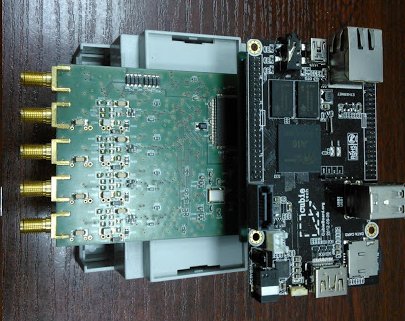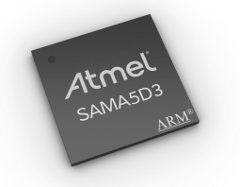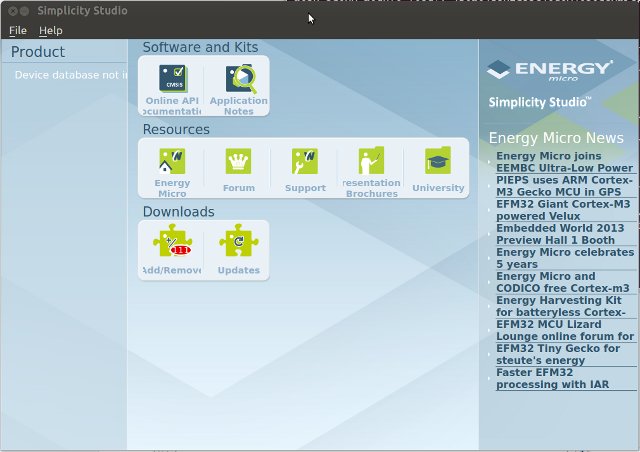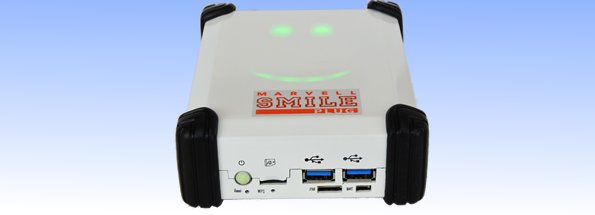Warsaw ELHEP (Electronics for High Eenergy Physics Experiments) Group is currently working on MMS (Mobile Measurement System) Project. This project features what I would call a “headless connected oscilloscope”, which can be detected on the network via SSDP, send the data via Websocket, and display it on iOS, Android, or Windows Phone devices. This oscilloscope does not feature any screen, and receives/transmits data via Ethernet, Wi-Fi, or Bluetooth. The original hardware is based on three main boards: CTI-VMAX – ARM9 with Wi-Fi, Bluetooth, and Ethernet connectivity. ARM SCOPE v1.0.1 with 8 channel ADC. ARM SCOPE v1.0.2 with 4 high speed ADC (100MSPS). The ELHEP researchers have been looking at replacing CTI-VMAX with low cost boards, and after considering several options, they chose to design two versions of their oscilloscope: one based on Cubieboard, and the other on the Beaglebone. So they designed expansions boards for the Cubieboard and Beaglebone in […]
Linux Conference Australia and FOSDEM 2013 Videos are Now Online
FOSDEM 2013 took place last week, and the organizers are in the process of uploading videos. Up to now, 5 main tracks sessions have been uploaded (Firefox OS; Free, open, secure and convenient communications; FreedomBox 1.0; Samba 4; and systemd, Two Years Later) as well as over 20 lightning talks. You can find the videos at http://video.fosdem.org/2013. You may also want to check my previous post for a lists of interesting talks, and I’ll probably feature some FOSDEM 2013 videos in this blog, at least the open source GPU driver talk. Linux Conference Australia took place on January 28 – February 1, 2013, and the 5-day conference featured lots of talks including several dealing with graphics in Linux, and one developer apparently trashing X in terms of complexity and performance, and explaining how Wayland was better. Others Linux sessions dealt with subject such as 3D printing, supercomputing, Arduino, big.LITTLE processing, […]
Atmel Introduces SAMA5D3 Cortex A5 Embedded MPUs and Evaluation Kits
Atmel has recently announced the Atmel SAMA5D3 series, a family of high performance, low-power microprocessor units (MPUs) based on ARM Cortex-A5 core. The SAMA5D3 series is designed for embedded applications in the industrial space, including factory and building automation, smart grid, medical and handheld terminals, as well as consumer applications such as smart watches, outdoor GPS, and DECT phones. SAMA5D3 family has the following characteristics: ARM Cortex-A5 core up to 536MHz (850DMIPS). Floating point unit (FPU) with up to 3 times the performance of Cortex A8 FPU. 166MHz bus speed delivering up to 1328MB/s bandwidth. Power consumption: <200mW in active mode at 536MHz with all peripherals activated 0.5mW in low-power mode with SRAM, registers retention and <0.5ms wake-up time ~1.2µA in backup mode with RTC running Connectivity: Dual Ethernet and dual CAN ports (Only one model has both) Gigabit Ethernet MAC with IEEE1588 and 10/100 MAC Two CAN controllers 3x […]
A Selection of FOSDEM 2013 Events
FOSDEM is a 2-day (or 3 if you include Friday beer event) event where over 5,000 members of open source communities meet, share ideas and collaborate. It’s free to attend, and there’s no registration, so you just show up to attend. FOSDEM 2013 takes place on Feb 2-3 (yep, this week-end) in Brussels There are 7 main tracks where sessions are organized: Operating systems Open source challenges Security Janson Beyond operating systems Web development Miscellaneous Robotics There are also keynotes and devroom for a total of 488 sessions. Developers rooms that may particularly be of interest to readers of this blog are: Cross Desktop devroom – e.g. Wayland, gstreamer, razor-qt, Qt Project, Plasma Active, etc… Cross Distro devroom – e.g. Linux on Android, suse on ARM, ARMv8, systemd, etc… Embedded and mobile devroom – e.g. Baserock Embedded Linux, Guacamayo (Yocto), Nemo Mobile/ Mer project, arduino… All in all that’s a […]
Linaro 13.01 Release with Linux Kernel 3.8 and Android 4.2.1
Linaro has just announced release 13.01 which includes Linux Kernel 3.8-rc4 and Android 4.2.1. A lot of work seems to have gone in Arndale board and OpenEmbedded ARMv8. It’s the first time an Ubuntu image is released for Arndale Cortex A15 development board. One the kernel side some Android upstreaming work has been done, as well as some fixes for eMMC, and code for ST Ericsson Novathor 8500 SoC has been reorganized. Version 14 of the big.LITTLE MP (Multi Processing) has been released. The LEG has done further work on Linaro UEFI and GRUB. Here are the highlights of this release: Android Platform Work The first step of the android-build front-end update for new build program has been landed. Origen and Versatile Express manifests have been consolidated into a single manifest. linaro-android-tools were developed to improve development time for kernel developers. See Kernel Update Tools for details. The android-build scripts […]
ARM MCU Development in Linux with Energy Micro’s Simplicity Studio, Eclipse, and CodeSourcery Toolchain
Quite a few months ago, I received an Energy Micro EFM32 Tiny Gecko Starter Kit, but I haven’t done much with it. But recently I saw a tweet from EnergyMicro about Simplicity Studio supports for Ubuntu, and I know it can be problematic to find proper tools for ARM MCU development in Linux, so I decided to give it a try. The first part is about Simplicity Studio, and energyAwareTools which are specific to Energy Micro, but the second part deals with setting up Eclipse and CodeSourcery ARM toolchain for MCU development which should be reusable for other MCUs from vendors such as Texas Instruments, NXP and STMicro. I’ve used a PC running Ubuntu 12.04 64-bit with the instructions below. Installing Simplicity Studio and energyAwareTools in Ubuntu Simplicity Studio is part of the 4 steps of the getting started guide with EFM32 MCUs. It has been available for Linux for […]
XBMC 12.0 Frodo Stable Release
XBMC developers have just announced the release of XBMC 12.0 (Frodo) which is available for desktop platforms (OSX, Linux / Ubuntu, Windows), Apple TV, iOS, Android (HW support limited), and even as a specific build for the Raspberry Pi. Other key features for this release include: HD audio support, including DTS-MA and Dolby True-HD, via XBMC AudioEngine Live TV and PVR support h.264 10bit (aka Hi10P) video software decoding for anime 64bit support in OSX to match the 64bit support in Linux Improved image support, allowing the database to accommodate numerous additional image types and more interesting and complex skins Improved AirPlay support across all platforms, including AirPlay audio in XBMC for Windows to match the other platforms Improved controller support in Windows and Linux Advanced Filtering in the library Video library tags to complement movie sets Advanced UPnP sharing Default video languages now match the language being used by XBMC Translations […]
Marvell SMILE Plug DevKit is Now Available for $199
The SMILE Plug is a development kit, designed jointly by Marvell and Standford University, that brings Wi-Fi connectivity to a classroom, and allows up to 60 pupils / students to interact with their teacher via their phones’ or tablets’ web browser. Other possible applications include cloud computing, wireless AP, industrial control, medical instrumentation, office automation, as well as mesh and grid computing. The SMILE Plug is now available with the following updated specifications: SoC – Marvell ARMv7 compliant Marvell ARMADA 370 CPU System Memory – 512 MB DDR3 Storage – 1 GB NAND Flash + microSD slot Connectivity WiFi 802.11 a/b/g/n via Marvell Avastar 88W8764 4×4 WiFi for up to 60 nodes 2x Gigabit Ethernet USB – 2x USB 3.0 External backup battery for hours of reserve power* (optional accessory) Power on button and restart Power Supply – 12V/2amp external power supply JTAG and UART port for programming and debugging […]









